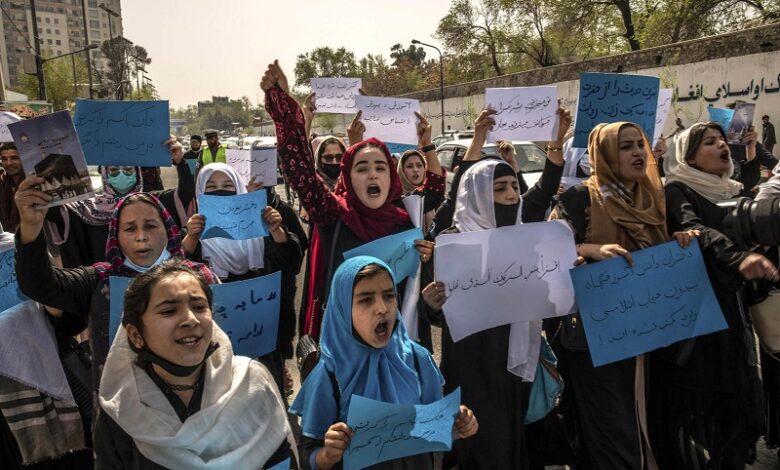UN Facilitates Talks About Women’s Rights Between Taliban and Global Envoys Amid Criticism

News Mania Desk/ Agnibeena Ghosh/28th June 2024
The upcoming meeting between Afghanistan’s Taliban leadership and representatives from around 25 countries, facilitated by the UN’s political chief, has sparked controversy over the exclusion of Afghan women. Undersecretary-General Rosemary DiCarlo addressed these concerns, emphasizing that women’s rights will be a central topic throughout the discussions.
Scheduled to commence on Sunday in Doha, Qatar, this will be the third UN-led engagement with Afghan envoys but the first to include the Taliban. Previously, the Taliban declined participation in the second meeting and were not invited to the first.
Representatives from various international bodies and countries, including the European Union, the United States, Russia, China, and Afghanistan’s neighboring nations, are expected to attend. The aim of the two-day gathering is to initiate a gradual process towards fostering peace within Afghanistan and ensuring the Taliban’s compliance with international norms, the UN Charter, and human rights standards.
Since seizing power in Afghanistan in 2021 following the withdrawal of US and NATO forces, the Taliban has faced international condemnation for policies restricting female education and employment, among other human rights violations. The absence of formal recognition as Afghanistan’s legitimate government reflects global reluctance until these issues are addressed.
During a prior visit to Kabul in May, DiCarlo conveyed international concerns to Taliban officials regarding inclusive governance, human rights abuses, terrorism, and narcotics trafficking. She reiterated that these topics will feature prominently in the upcoming discussions in Doha.
DiCarlo clarified that the meeting is not intended as an inter-Afghan dialogue but rather as a structured process aimed at engaging the Taliban on critical issues affecting Afghanistan’s stability and international standing. The Taliban’s priorities for the meeting include financial sector concerns, private sector development, and combating drug trafficking, with additional emphasis on climate vulnerability.
The agenda for the first day of talks will focus on international engagement strategies with the Taliban, aiming to secure commitments towards peace and human rights. The second day will address economic initiatives such as integrating women into the workforce through microfinance projects and implementing anti-narcotics measures.
DiCarlo expressed cautious optimism about the meeting’s potential for progress but stressed that outcomes are expected to evolve gradually. She emphasized that the discussions do not imply international recognition of the Taliban as Afghanistan’s government.
Before convening with global envoys, DiCarlo met with Afghan diaspora members to discuss their perspectives and concerns. Following the main sessions, further engagements are planned with Afghan civil society representatives, particularly women, and private sector stakeholders residing within Afghanistan.
The UN’s role in facilitating these discussions underscores international efforts to engage with the Taliban constructively while advocating for fundamental rights and inclusive governance in Afghanistan. The outcomes of this meeting are anticipated to shape future diplomatic engagements and humanitarian interventions in the region.






